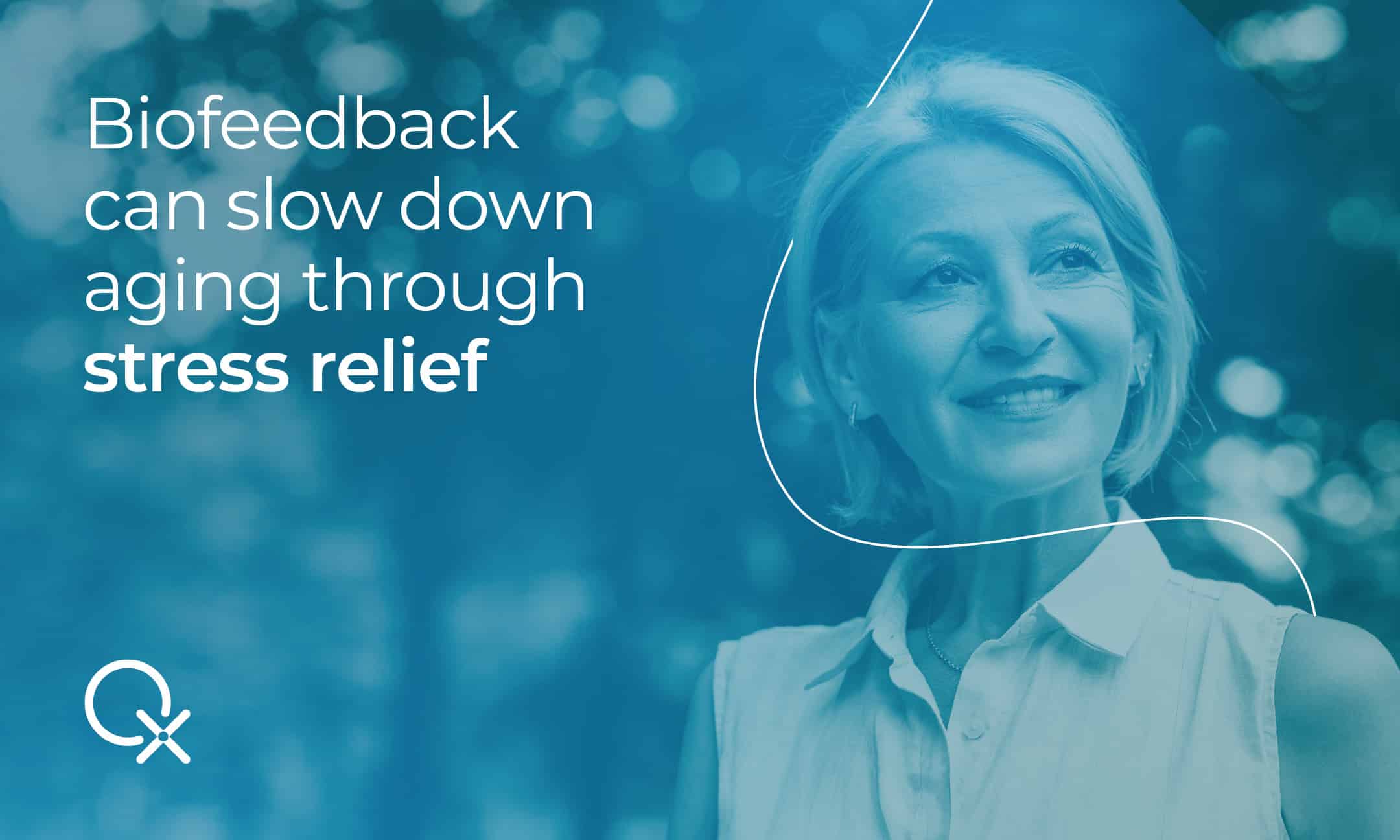
In our eternal pursuit of unraveling – and even trying to reverse – the aging process, biofeedback emerges as a powerful method to potentially slow down the biological clock. In this article, we will explore the link between stress and aging and how stress management techniques including biofeedback can contribute to overall health and vitality.
From workplace demands and personal tribulations to societal pressure: stress is an inevitable part of human life. While it has been long understood that stress can take a toll on our mental well-being, recent research suggests that unmanaged stress causes 90% of illnesses and can also affect the aging process.
Critical to the aging process are telomeres – protective caps situated at the chromosome ends. As cells divide, these protective caps naturally diminish, inducing cellular aging and potential health complications. Chronic stress, as evidenced by recent studies, accelerates telomere shortening, leading to premature aging at the cellular level.
In other words, individuals who experience high levels of stress may age more rapidly compared to those who know how to reduce stress effectively.
Stress also triggers a physiological response in our bodies known as the ‘fight or flight’ response, designed by nature to protect us during dangerous situations. However, when stress becomes chronic, this response can lead to increased inflammation and oxidative stress.
What is oxidative stress?
Oxidative stress is a physiological imbalance between the production of free radicals and the body’s ability to neutralize or detoxify their harmful effects. Free radicals are highly reactive molecules that contain unpaired electrons, making them unstable. They can damage cells, proteins, and DNA within the body.
With inflammation and chronic stress harming cells and tissue over time, they inevitably contribute to the aging process. As chronic stress weakens the body’s ability to repair and regenerate, signs of aging become more visible.
While stress primarily affects physical health, its impact on mental well-being also plays a significant role in the aging process. Prolonged stress can increase the risk of developing mental health conditions such as depression and anxiety, which have been linked to accelerated cognitive decline.
Fortunately, there are various strategies to effectively manage stress and mitigate its impact on aging. Engaging in regular exercise, practicing mindfulness and relaxation techniques, maintaining a healthy diet, and fostering social connections have all been shown to reduce stress levels and promote healthy aging. Seeking support from loved ones, professional therapists, or support groups can also help to handle stress effectively.
Biofeedback, too, can be a valuable tool for gaining insights into our health status as well as for stress management. Utilizing a special biofeedback device that tracks heart rate, breathing patterns, and brainwave activity, a biofeedback practitioner provides a detailed insight into the way your body works. All measurements from the device are displayed on a monitor, with the practitioner guiding you in interpreting and, if necessary, controlling or influencing them with stress management techniques.
Biofeedback can even help reduce stress by harmonizing the body’s electric system. Quantum biofeedback slows down degenerative mechanisms and potentially attenuates the aging process.
Taking care of your physical and emotional health today can have a positive impact on your future vitality and longevity. By adopting stress management techniques and making self-care a priority, you can work towards maintaining optimal well-being and promote graceful aging at the same time.
+1 (989) 681-1063
+1 (856) 322-8589